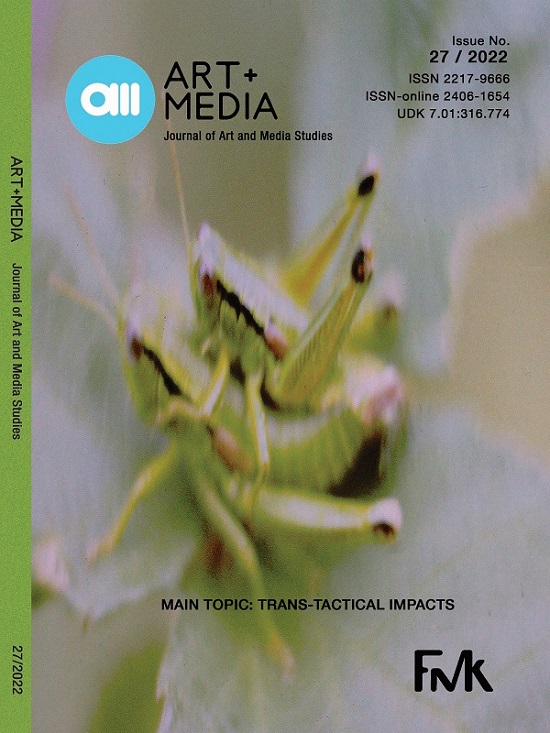Back from the Future: Theatre and Performance in Central Eastern Europe Beyond the Anthropocene, 1920–Today
Back from the Future: Theatre and Performance in Central Eastern Europe Beyond the Anthropocene, 1920–Today
Author(s): Micha BraunSubject(s): Theatre, Dance, Performing Arts, Aesthetics
Published by: Fakultet za medije i komunikacije - Univerzitet Singidunum
Keywords: performance art; body art; (post-)communist condition; community projects; alternative orders; reism; finiteness; Paweł Althamer; OHO Group; Karel Čapek.
Summary/Abstract: Theatre is and has always been a practice of imagination – especially of alternative worlds, spaces, and futures. This does not only apply to theatre and performance in its well-established and acknowledged forms, but even more to non-conformist or experimental practices that deal with repressive, authoritarian regimes or with a perception of crisis in general. At least since the historical avant-gardes of the early 20th century, an outlook onto alternative futures that can handle or even overcome these crises has been a regular feature of theatre and performance practice. A particularly imaginative approach within such projections features notions of a human-less time and space – a world beyond the Anthropos. The resulting notions of a deserted world, of a continuing (and perhaps flourishing) ecosystem, or a lifeless wasteland ‘populated’ only by objects, robots, or other remnants, can be perceived as an expression of a certain awareness of a world in peril – ecologically, politically, and socially – already in their time of origin. Utilizing a comparative approach, my paper examines several instances of those theatrical practices between the historical avant-garde, the neo-avant-garde and the present time, with a special focus on Central Eastern Europe. Exemplary projects and works like Karel Čapek’s drama R.U.R. (1920 with several stagings in the following years), or Paweł Althamer’s social experiment Common Task (2009 ff.) will be introduced as well as the conceptual perspective of Reism (thing-ism), formulated by the Slovenian group OHO (around Marko Pogačnik, 1966 ff.). From the common viewpoint of the mentioned projects – back from a future beyond the Anthropocene – a radically different relationship to the world, nature, and the subject arises: instead of an anthropocentric mastery over the world, a more or less non-hierarchical way of dealing with subjects, objects, animals and people can be observed.
Journal: AM Časopis za studije umetnosti i medija
- Issue Year: 2022
- Issue No: 27
- Page Range: 149-159
- Page Count: 11
- Language: English

